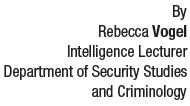
 The approaching “fourth industrial revolution” was the theme for the 2016 World Economic Forum, and a global report entitled, Amplifying Human Potential was released at the Forum. The report discussed the digital technologies young workers will need to navigate and the skills they will need. The report reiterated the importance of education—that “through education, there is an unassailable opportunity to prepare everyone for such a change (Infosys, 2016).”
The approaching “fourth industrial revolution” was the theme for the 2016 World Economic Forum, and a global report entitled, Amplifying Human Potential was released at the Forum. The report discussed the digital technologies young workers will need to navigate and the skills they will need. The report reiterated the importance of education—that “through education, there is an unassailable opportunity to prepare everyone for such a change (Infosys, 2016).”
The education system, both at a secondary level and the tertiary level, needs to be directly involved in programs to enhance cybersecurity skills. While the tertiary level appears to be moving in the right direction, in 2014, 64% of high school students America did not have access to computer science classes or other classes that would help prepare them for a career in cybersecurity (Raytheon, 2014). Industry experts consider that even if schools place a much stronger emphasis on cyber security, it may take up to twenty years for the skills gap to close (L. Morgan, 2014).
Increased Workforce Capability
In October 2012, the FBI launched its Next Generation Cyber Initiative, which was aimed at enhancing the Bureau’s ability to deal with cybersecurity issues. To do this, the FBI sought to hire more computer scientists. While the FBI has made some progress toward this goal, recruitment and retention of qualified candidates is reported to remain a challenge; this is because there are higher salaries offered in private industry (Dunsmuir, 2015). Tellingly, a 2015 audit of the Next Generation Cyber Initiative showed the FBI was not able to hire 52 of the 134 computer scientists it was authorised to recruit, presumably because of the lower wages the Bureau offered (Office of the Inspector General, 2015).
In Australia, the 2013 Australian National Plan to Combat Cybercrime identified two key priorities that were intended to strengthen its response to the cybersecurity skills shortage:
- Improving the capacity and capabilities of agencies to address cybercrime, and
- Partnering with industry to tackle the shared problem of cybercrime.
The imperative for cyber capacity and capability was explained in the report, saying, “…law enforcement agencies need to keep pace with evolving technologies if police are to perform their duties in the digital environment (Commonwealth of Australia, 2013). Similarly, the Australian Crime Commission (ACC), Australia’s national criminal intelligence agency, in its National Organised Crime Response Plan 2015–18, cited the need to:
- progress the priorities set out in the 2013 Australian National Plan to Combat Cybercrime, specifically, … improving the capacity and capability of government agencies, particularly law enforcement, to address cybercrime; and
- develop a technical capability community of interest, comprising a national forum for relevant agencies and organisations to discover and understand the technical capability challenges facing law enforcement agencies nationally that impede investigations into cybercrime and technology-enabled crime, to identify mechanisms to mitigate or address these capability challenges. (Australian Crime Commission, 2015a).






